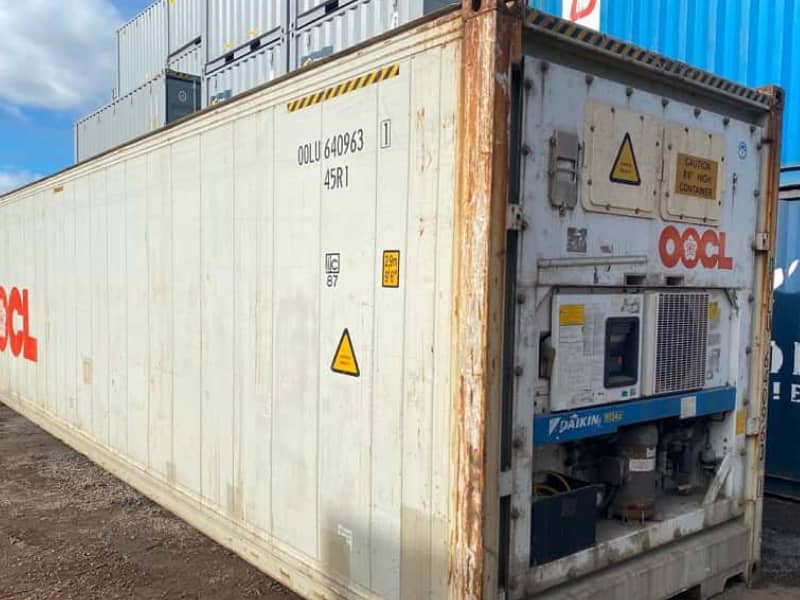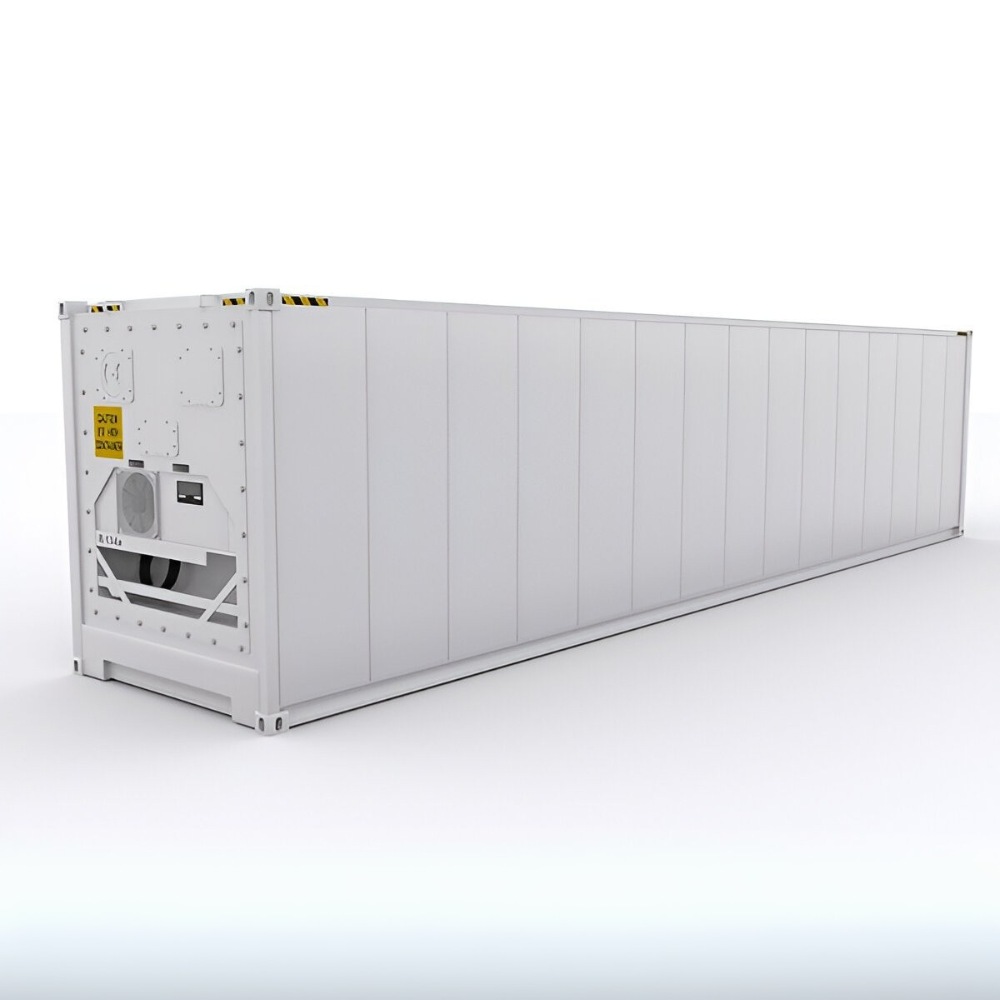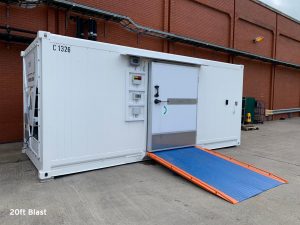Everything About Cold Store Containers: Vital Insights for Your Storage Needs
Cold storage space containers play an important function in the preservation of subject to spoiling products. They are available in numerous kinds, including cooled and insulated devices, each made for specific storage requirements. Comprehending the benefits and vital features of these containers is crucial for services aiming to optimize their operations. As the need for reliable storage space options expands, discovering the various options available can lead to notified decisions that influence both profitability and sustainability. What aspects should one think about when choosing the ideal container?
Kinds Of Freezer Containers
Freezer containers come in numerous types, each made to fulfill certain temperature level control demands. Among one of the most typical types are cooled containers, which preserve temperature levels between 0 ° C to 10 ° C, making them appropriate for perishable products like fruits, vegetables, and dairy products. An additional type is the deep fridge freezer container, which runs at temperatures below -18 ° C, suitable for long-term storage space of frozen items such as meats and seafood.
Insulated containers supply temperature security without active air conditioning, making them useful for temporary transport of temperature-sensitive products. In addition, there are mobile cold store devices, which supply adaptability in places and are typically used in occasions or seasonal operations. Finally, blast chillers rapidly reduce the temperature of warm foods, guaranteeing security and high quality. Each kind offers an unique function in different industries, from food service to drugs, emphasizing the relevance of selecting the best container for particular storage space requirements.

Benefits of Using Freezer Solutions

Additionally, freezer remedies prolong the life span of products, reducing waste and increasing earnings for organizations. By efficiently managing supply with appropriate temperature level control, firms can maximize their supply chains and boost operational efficiency.
In addition, freezer facilities allow for versatile storage alternatives, suiting different volume requirements and seasonal changes in need (used 40ft refrigerated shipping containers). This adaptability aids organizations react swiftly to market changes
Employing cold storage remedies can guarantee conformity with health and wellness and security regulations, safeguarding both consumers and services. Generally, the calculated usage of cool storage boosts item management while promoting sustainability and economic stability.
Secret Attributes to Seek in Cold Store Containers
When choosing freezer containers, a number of key functions advantage mindful factor to consider to safeguard peak efficiency and dependability. Initially, temperature level control abilities are crucial; containers need to keep regular temperatures ideal for particular items. Insulation top quality likewise plays a considerable function, as exceptional insulation reduces power consumption and improves temperature level security.
Next, ease of gain access to and loading is crucial; containers need to provide easy to use designs for reliable handling and company. Sturdiness is another essential element; weather-resistant materials guarantee longevity and protect components versus environmental variables.
Additionally, movement features, such as integrated wheels or lifting factors, assist in transport, while adjustable layouts permit tailored storage space remedies.
Last but not least, monitoring systems, consisting of temperature level alarm systems and remote tracking, give real-time updates, making specific that problems remain excellent. By concentrating on these functions, customers can pick freezer containers that fulfill their functional needs properly.
Picking the Right Cold Storage Space Container for Your Needs
Picking the appropriate cold store container needs a thoughtful evaluation of functional requirements and specific needs. Factors such as the kind of products being saved, temperature level level of sensitivity, and volume must be focused on. Disposable food products may require containers with rigid temperature controls, while pharmaceuticals may call for specific conditions to keep efficiency.
Additionally, potential individuals need to consider the container's dimension and flexibility. A bigger device might be needed for bulk storage, while smaller, mobile choices could be excellent for on-site or temporary demands. Insulation top quality and power effectiveness are additionally important, check my reference as these will influence operational costs and temperature security.
Finally, compliance with sector regulations and criteria is essential, specifically in sectors like food and healthcare. By thoroughly evaluating these aspects, users can select a chilly storage space container that properly meets their unique requirements and guarantees ideal storage problems.
Best Practices for Keeping Freezer Issues
Preserving excellent cool storage space conditions is vital for maintaining the top quality and security of temperature-sensitive items. Regularly checking temperature and humidity degrees is important; using trusted digital thermometers and hygrometers can supply accurate readings. Proper insulation of chilly storage containers helps see this here reduce temperature variations and energy loss.
Implementing a first-in, first-out (FIFO) system assures that older inventory is made use of prior to more recent stock, lowering waste (used 40ft refrigerated shipping containers). In addition, maintaining an arranged design within the storage area permits for better air movement and minimizes the threat of cross-contamination
Regular upkeep look at tools, such as compressors and seals, are necessary to avoid breakdowns. Personnel training on best methods for loading and discharging items aids maintain temperature level integrity. Keeping doors shut as much as possible restrictions warm exchange, ensuring that the chilly storage space setting stays secure and effective in preserving useful items.
Price Considerations for Freezer Solutions
When assessing cold store remedies, it is important to take into consideration the first financial investment prices along with recurring operational expenditures. A comprehensive failure of these expenses can reveal substantial long-lasting cost savings possibility for companies. Recognizing these monetary facets assists stakeholders make notified choices regarding their cold store requirements.

First Investment Prices
The financial landscape of cool storage space containers offers numerous initial financial investment costs that organizations should take into consideration. These prices generally include the purchase or rental price of the containers, which can differ based upon type, insulation, and dimension quality. Furthermore, expenditures connected to retrofitting existing frameworks to suit cool storage needs to be factored in, especially if specialized devices is required. Installation prices, consisting of electrical job and refrigeration systems, also contribute to the total initial investment. Companies need to not ignore transportation prices for providing containers to their wanted place. Possible personalization options, such as shelving or temperature level monitoring systems, can further affect the first financial expense. Careful budgeting for these variables is necessary for successful cold store execution.
Operational Costs Breakdown
Functional expenditures for chilly storage services incorporate several important cost considerations that services must navigate. Trick factors include energy prices, which can be significant due to the requirement to keep low temperature levels. Maintenance expenditures are also considerable, as normal servicing is crucial to guarantee devices runs successfully and remains compliant with wellness and security criteria. Additionally, labor costs may develop from the demand for specialized personnel to take care of and monitor the storage environment. Insurance costs are one more factor to consider, as firms must protect their investments against potential losses. Any type of prospective regulative conformity expenses need to be factored in, as services may need to spend in systems that adhere to food safety and environmental regulations. Understanding these expenditures is crucial for reliable budgeting.
Long-Term Financial Savings Possible
Spending in why not find out more chilly storage solutions supplies significant long-lasting financial savings possibility, transforming initial expenses right into monetary efficiency with time. By decreasing spoilage and waste, organizations can improve their revenue margins considerably. Advanced insulation and energy-efficient systems reduce energy expenses, which accumulate over the lifespan of the tools. Additionally, freezer containers commonly need less constant maintenance contrasted to standard refrigeration techniques, resulting in lower fixing costs. The ability to shop products for extensive periods without endangering quality enables businesses to take advantage of market fluctuations, maximizing revenue. Furthermore, the scalability of freezer remedies enables business to adjust to changing demands without sustaining excessive expenses. On the whole, these factors add to an engaging case for chilly storage space as a cost-effective investment method.
Regularly Asked Questions
The Length Of Time Can Food Be Saved in Cold Storage Containers?
The duration food can be kept in chilly storage space containers differs by type. Typically, disposable things last from days to weeks, while frozen foods can stay secure for months, relying on proper temperature and storage conditions.
Are Cold Storage Space Containers Energy-saving?
The power performance of cold store containers varies based on style and insulation high quality. Modern systems often utilize sophisticated innovation to reduce energy usage, eventually adding to minimized operational expenses and ecological effect in long-lasting use.
Can Freezer Containers Be Customized for Particular Needs?
Cold storage containers can indeed be customized to fulfill specific demands. Modifications might consist of temperature level controls, size adjustments, and added attributes, allowing individuals to tailor solutions effectively for numerous storage space requirements and operational choices.
What Are the Common Sizes of Cold Store Containers?
Cold store containers normally come in standard dimensions such as 10, 20, and 40 feet. These measurements suit various storage space requirements, making certain adaptability for organizations needing temperature-controlled environments for sensitive materials or disposable goods.
Do Cold Storage Space Containers Require Unique Permits for Usage?
Cold store containers often need special authorizations for use, relying on regional regulations and planned applications. Authorities may mandate authorizations to ensure safety and security criteria, environmental conformity, and appropriate operational methods are preserved throughout their use.
Cold storage containers come in numerous types, each developed to satisfy specific temperature level control needs. Furthermore, cold storage centers allow for adaptable storage choices, accommodating different quantity needs and seasonal changes in demand. Selecting the appropriate chilly storage space container requires a thoughtful evaluation of functional demands and details requirements. The monetary landscape of cold storage space containers presents different first financial investment costs that services have to consider. Cold storage containers can undoubtedly be tailored to meet specific requirements.